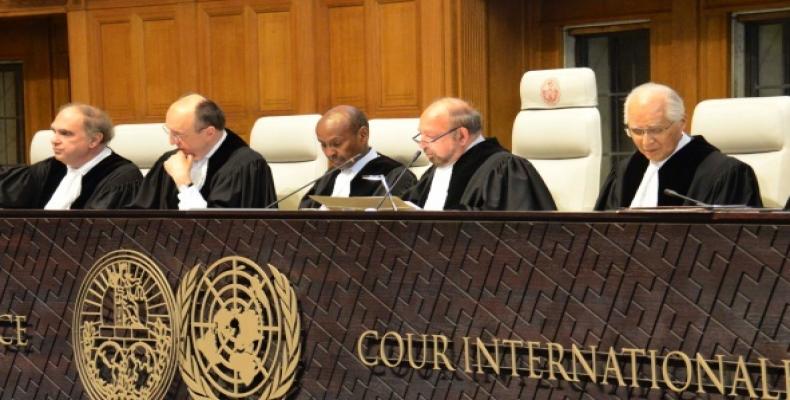The Hague, May 9 (teleSUR-RHC)-- Bolivia finished presenting its argument for access to the sea to the International Court of Justice on Friday.
In their closing comments, the Bolivian representatives urged Chile to negotiate in good faith over the long standing territorial dispute. “From the beginning Chile has always declared its readiness to meet the demands of Bolivia, but has never followed through on that,” said Monique Chemiller, one of the members of the Bolivian legal team.
The Bolivian representatives to the court have been making their case since Wednesday.
Bolivia's case before the court in The Hague rests on a 1904 treaty with Chile. The treaty was signed at the end of a war between Chile and its neighbors, Bolivia and Peru.
During the war Chile annexed 74,400 square miles of Bolivian territory, including 248 miles of coastline. The loss deprived Bolivia of its only access to the sea, though under the 1094 treaty Chile promised to provide compensation.
Bolivia now says Chile agreed to cede a corridor to the sea decades ago, but the administration of President Evo Morales has argued this was never carried through. The legal team in The Hague now says Chile should honor past commitments.
"Our country became landlocked, an enclave on the South American continent, with serious consequences for our economic and social growth and for our international integration,”
Bolivian legal council Rodriguez Veltze argued earlier this week.
Chile argued on Monday that Bolivia's case at the ICJ has been an attempt by Bolivia to renegotiate the 1904 treaty. Bolivia’s legal team refuted these claims, arguing that its petition before the ICJ is independent of the 1904 treaty.
During the legal arguments, Veltze emphasized that Chile “has repeatedly stated that it will negotiate independently of the 1904 treaty and has recognized that the denial of sovereign access, continues to be an injustice against Bolivia which undermines its development and hinders the development of friendly bilateral relations between the two countries.”
On Wednesday, Morales addressed the case stating, “I am very proud of our legal delegation, who I think made excellent opening arguments.” The Bolivian leader expressed full confidence in the ability of the court to reach a just and fair ruling. The court is expected to deliver a decision by the end of the year.


